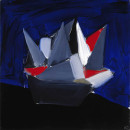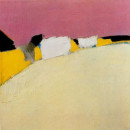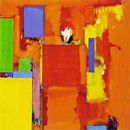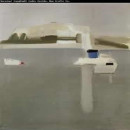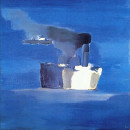4 Poets in Magma
Magma is a go-ahead poetry magazine that chooses a different editor for each of its thrice yearly issues. It is generally represented at the Ledbury Poetry Festival, and launches its poets at the Troubadour Coffee House in Old Brompton Road, London SW5. There are generous review sections and, like many others in the UK, the magazine receives funding from the Arts Council. The issues put on line by the Poetry Library date from 2005-6, and include many poems not displayed for copyright reasons. Most of the work, I fear, is closer to prose, and not very interesting prose either, but I’ve picked four examples that offer something better. The first is In Praise of Land Drains by Jane Routh, who modestly describes herself as managing a woodland and keeping a flock of geese. The poem is at: http://www.poetrymagazines.org.uk/magazine/record.asp?id=24824 It’s...
Read More5 Poets in Iota
Iota is published three times a year, and is now in its third decade of publication. The editorial team is based at the University of Gloucestershire, and all submissions are read anonymously. Submissions are invited from around the world, and there is the customary international poetry competition. Many of the poets featured have won local or national awards, and the magazine has interviews that place the contributors’ work in context. Generous space is also given to reviews of recent poetry collections: a most welcome feature. It may seem churlish to ignore work by poets winning prestigious prizes, but I have chosen a few poems here that appeal more – probably because they’re intelligently structured – and passed over a good many others by better-known names that seem rather flat and predictable. Iota is no doubt improving, and now attracting the...
Read More6 Poets in The Interpreter’s House
The Interpreter’s House has been going for close on twenty years now, by no means making it an old-timer but still something commendable, requiring time, energy and commitment. The venture started life in 1996 as a Bedfordshire magazine, and indeed the title comes from ‘Pilgrim’s Progress’ – ‘the house of the Interpreter; at whose door he should knock; and he would show him excellent things’. The editor Merryn Williams looks for “the union of simplicity and mystery which makes writing memorable” The editor goes on to say: We’ve included some extremely distinguished poets (Dannie Abse, Alan Brownjohn, David Constantine, Sophie Hannah, Sheenagh Pugh, Carole Satyamurti, Vernon Scannell, R.S. Thomas), and work first published in THE INTERPRETER’S HOUSE has appeared in the last three Forward Books of Poetry. And: I believe that modern poetry has drifted dangerously far from the...
Read MoreThe Frogmore Papers
The Frogmore Papers is a long-standing literary journal, founded in 1983 and now edited by Jeremy Page, Mary Hetherington and Catherine Smith. There is the usual mix of established writers and newcomers, but the advice given in the literary journal does indeed apply: . . . the only criterion for selection being quality. However, it’s worth noting that the following are unlikely to be find favour: very long stories, very long poems, poems written in an idiom that is anything other than contemporary, poems that try too hard. That last phrase is worth emphasizing. The published work is certainly in a contemporary voice, with no hint of metre or rhyme to interrupt the poised, flexible and intelligent tone, but sometimes so light-weight and reticent in content as to be scarcely saying anything at all. The London Poetry Society Library...
Read More5 Poets in Chroma Magazine
Chroma, a literary magazine devoted to by lesbian, gay, bisexual and transgender writers and artists published 11 issues between 2004 and July 2010. It enjoyed the support of the Arts Council, England, and three issues have been placed online by the Southbank Poetry Library. The editors when the magazine closed were Shaun Levin and Saradha Soobrayen. The former said, ‘We want each issue to be exciting in its diversity of voices and the wide range of art work we include. If you want to be part of the mainstream, we’re probably not the journal for you. We want writers who take risks in their work, who experiment, and still tell a story beautifully.’ Half the work in the three issues is unavailable online but, to judge by the remainder, the poetry is in free verse form, or more strictly...
Read More6 Poets in The Cannon’s Mouth
The Cannon’s Mouth is the quarterly journal of the Cannon Poets, a local group of poets that meets every month in the Post Office Building of Moseley in Birmingham. Anyone who attends such groups in England will recognize the work as typical of poets who have a day job and/or family to support. It’s straightforward, friendly and unpretentious. Not much would be published by the more serious and prestigious magazines, I suspect, but there are several accomplished pieces and more that simply need time and thought to be worked up properly. About half the work is ‘restricted access’, i.e. readers can consult the magazine in the Poetry Library but the authors have not given permission for Internet access, though why is a mystery, since the greatest problem facing contemporary poets is not having their work stolen but finding a readership...
Read More6 Poets in Candelabrum Poetry Magazine
Candelabrum Poetry Magazine has been going since 1970, consistently providing a much-needed platform for traditional verse, quality free verse and short forms like the haiku and tanka. The magazine appears twice a year, and its editor is still M. L. McCarthy. The website is here: http://www.members.tripod.com/redcandlepress/Magazine.htm Most of the work here is competently turned, though not generally breaking new ground. The problems are those of any art form that measures itself against the achievements of the past: borrowings, an uncontemporary diction at times, and vacuity when the rhymed container exceeds the content. There is more to writing traditional verse than getting it to scan and rhyme, and the pieces chosen here have that added naturalness that seems artless but is usually the result of long practice and repeated polishing. The poems are taken from the Poetry Library’s 2006-7 online...
Read More6 Haiku Poets in Blithe Spirit
Blithe Spirit is that most estimable of things, the unpretentious poetry magazine that has quietly served its small readership year after year with poems, articles and discussions. Blithe Spirit is the Journal of the British Haiku Society, but with haiku are included senryu, tanka, haibun and renku. The Journal first appeared in 1991 and is now 64 page publication with a circulation around 300. I am not sure haiku, or any of the condensed eastern forms, really works in English, or – to put matters another way – convinced that the syllable restriction is a sufficient basis for poetry of any substance. Other verse techniques – rhythm, sound pattering, rhyme – would seem equally important, but its devotees obviously see matters differently. The poems are too short to select lines from, and to showcase the work I have had...
Read More5 Poets in Artemis
Artemis is a showcase for women poets, reviewers and artists. It is published by Second Light Publications as a 60 pp + magazine twice a year, and especially features older poets who have been writing for years without proper recognition. The reviews in particular provide a handy round-up of who’s doing what on the UK poetry publishing scene. I have chosen five poems to illustrate the work available on line by courtesy of the London South Bank’s Poetry Library. Many are winners or runners-up in competitions. To start on a light-hearted note, Caroline Carver’s If you are stolen, call police (http://www.poetrymagazines.org.uk/magazine/record.asp?id=25960) puts together a list of delightful warnings from those whose first language isn’t English. It starts: The sea is dangerous Please don’t swim Once happen any accident At his own risk If going out hold walking lane always...
Read More5 Poets in Acumen
Acumen was started in 1985 by Patricia Oxley and is now a fat (120 page) production appearing three times a year, with articles, reviews, translations, but mostly poetry. Each issue contains around 50 poems, and the style is mainstream with an emphasis on what might be called an intelligent use of craft. Many contributors are well known on the UK poetry scene, but new poets are also found a place. Only three issues are currently online via the Poetry Library on London’s Southbank (issues 39, 46 and 50) and it is from issue 50 (September 2004) that I’ve selected five pieces for brief review. The pieces largely speak for themselves: I’ll just note the features that seem specially worthy of comment. Ghazal by Mimi Khalvati can be read at: http://www.poetrymagazines.org.uk/magazine/record.asp?id=21608 The aa etc. xa ya za aa rhyme scheme...
Read MoreEmotion in Poetry
This is the second in a series on Coleridge and poetry. In the first I looked at Coleridge’s well known definition of poetry as the fusion of an unusual degree of emotion with an unusual degree of form, and suggested that a. words in poetry have a value beyond that of conveying a simple meaning (i.e. operate like elements in a painting) and b. poems ‘worked’ by having their constituents operate in different ways, which we might call their ‘functionality’. Once again, this will be a rather discursive post where I put down the points as they come to me. Perhaps, if results warrant it, and I can find the time, I’ll organize this material into a little handbook on reading contemporary and other poetry, but for the present you have an example of ‘I wrote a long article...
Read MoreThe Yale Review
What the oldest literary review in America is now publishing is the motive for this brief note on brief poems. Founded in 1819, the Yale Review is today under the editorship of the poet and literary critic J.D. McClatchy. It aims to give its distinguished authority to ‘bold established writers and promising newcomers, to both challenging literary work and a range of essays and reviews that can explore the connections between academic disciplines and the broader movements in American society, thought, and culture.’ Because back issues give only a contents listing of contributors (though many are well known) I can only comment on the current edition, which provides a reasonable selection of its poetry. Speculation and elegance (to again quote the quarterly’s aims) are prominent in the five pieces I present here. All are modest in intention and muted...
Read More
